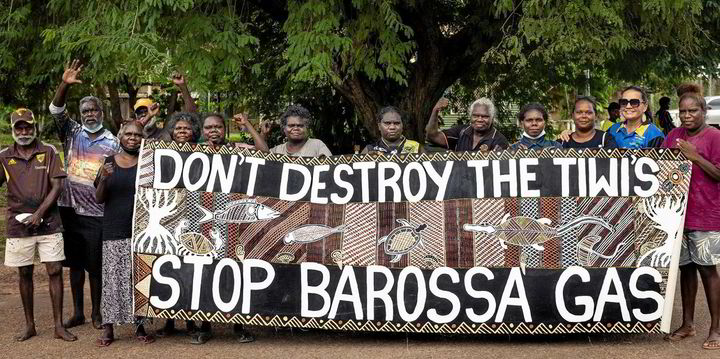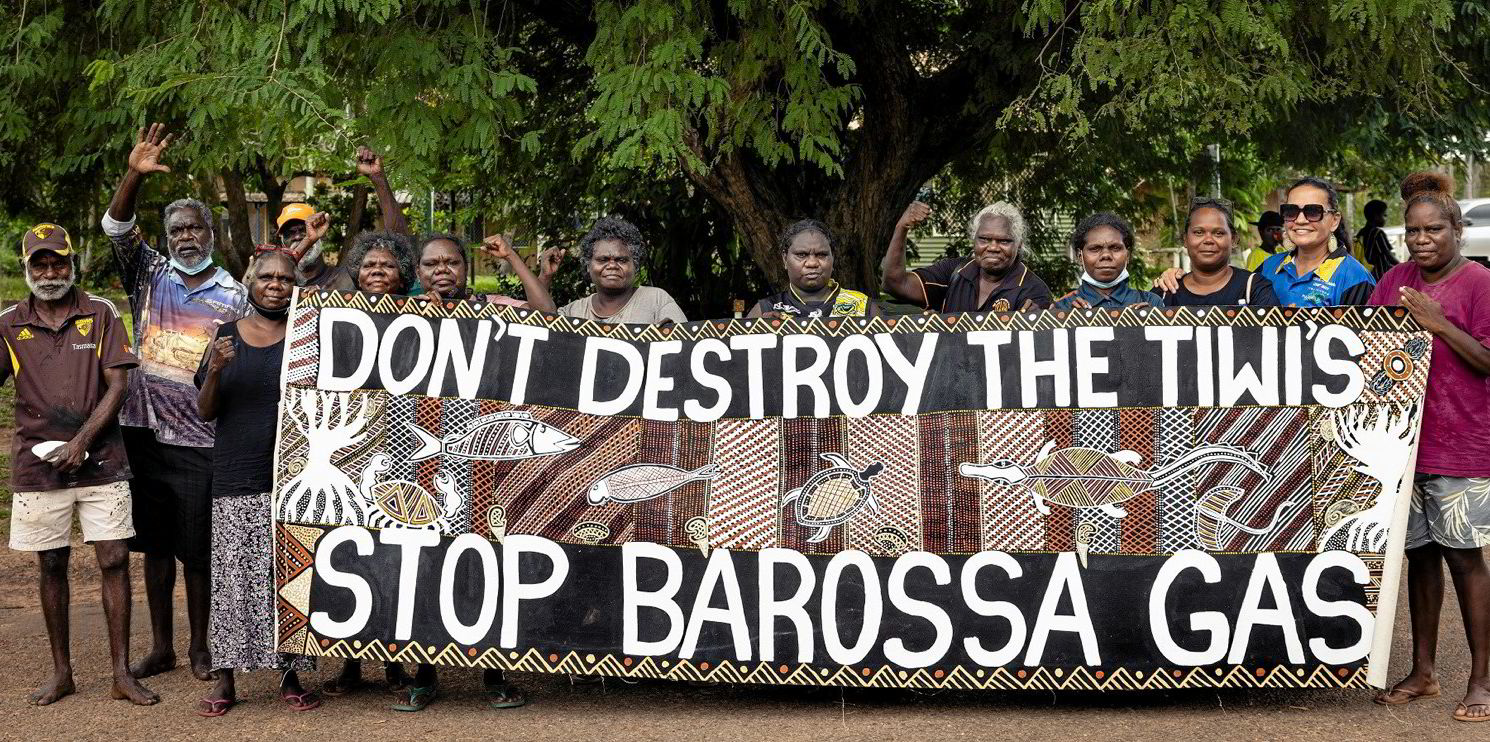Santos has denied claims of human rights abuses against Indigenous Australians relating to domestic gas and liquefied natural gas projects planned or under development that have been alleged to some of the company’s investors and financiers.
The company confirmed that some of its financiers and investors recently received a letter from Equity Generation Lawyers on behalf of up to nine individuals (claimants) alleging breaches of the human rights of Tiwi Island, Larrakia and Gomeroi people arising from its offshore Barossa gas project, Darwin LNG life extension project and onshore Narrabri gas project.
“Santos categorically rejects the allegations of human rights breaches in their entirety and reserves its rights in relation to this matter,” the Australian gas player said.
Equity Generation Lawyers, which bills itself as specialists in Australian climate change law, early last month filed human rights grievances against financial institutions supporting the Barossa gas project located in waters off northern Australia.
“Human rights complaints, or grievances, were sent to the following banks for an apparent failure to undertake adequate human rights due diligence for the US$1 billion loan in addition to breaches of policy and international human rights standards, including the failure to obtain free, prior and informed consent,” noted the law firm.
Those financial institutions included Australia’s ANZ and Westpac, DNB Bank of Norway, Singapore’s DBS Bank and three Japanese banks.
Article continues below the advert
In tandem, export credit agencies in Japan and South Korea that are set to provide financial support to Santos’ project partners from those nations also received letters of complaint.
These complaints requested each financial institution to exit loans and facilities for the ‘risky’ Barossa gas project.
“Amongst other things, the letters to investors ask each recipient to: ‘immediately begin to effectively exercise its leverage, or increase its leverage, on Santos to stop development of the Barossa, DLNG and Narrabri projects, or if this is not achieved within a reasonable time, divest’,” noted Santos.
The company said it is engaged in lawful regulatory processes for the three gas projects – processes that involve consultation with Indigenous people and other stakeholders, including consideration of their feedback in finalising various project plans.
“For Narrabri, Santos is also responding to an appeal in the Federal Court involving consideration of native title issues,” it added.
“Santos respects these legal processes and will exercise its rights and obligations in accordance with all Australian laws. These lawful regulatory and court processes should not be interfered with, undermined or prejudiced in any way.”
Upstream has reached out to Equity Generation Lawyers’ named media contact for comment and further details on the matter.
Santos added that these claimants have not sought to have their grievances determined or remedied in a court of competent jurisdiction where the company could properly respond.
“It should [also] be noted that Equity Generation Lawyers do not act on behalf of, or represent Tiwi Island, Larrakia or Gomeroi people as a whole, with these people numbering in the tens of thousands,” said Santos.
The company has more than 90 agreements in place across Australia that relate to native title, Aboriginal land rights and cultural heritage management, involving six Aboriginal Land Councils and 23 Traditional Owner groups.
Santos last year increased its permanent Indigenous workforce by 20% and Indigenous Australians now make up 1.4% of its Australian workforce, while more than 20% of the company’s Australian apprentices and trainees identify as Indigenous.
The operator has also established an Indigenous Advisory Panel to review, advise upon and inform its engagement and partnerships with Indigenous people, and to further opportunities for greater Indigenous participation.
Santos’ board-endorsed Human Rights and Modern Slavery Policy states that the company “is committed to supporting and respecting the protection of internationally recognised human rights as set out in the United Nations International Bill of Human Rights and works to align with the UN Guiding Principles on Business and Human Rights and the Voluntary Principles for Security and Human Rights in our practices and procedures”.

